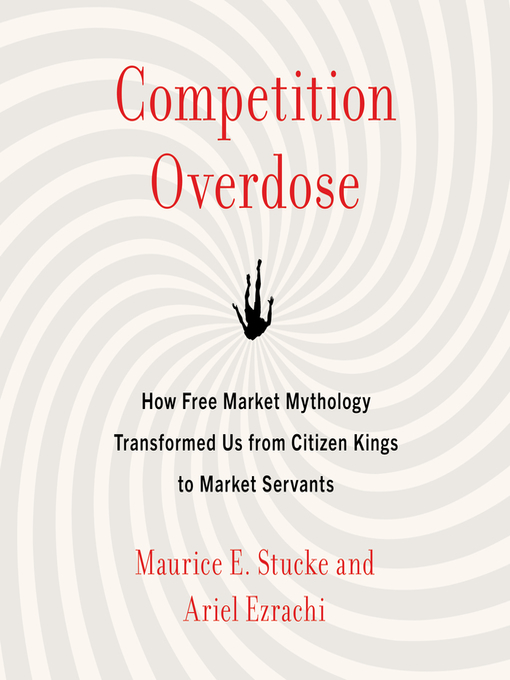Using dozens of vivid examples to show how society overprescribed competition as a solution and when unbridled rivalry hurts consumers, kills entrepreneurship, and increases economic inequality, two free-market thinkers diagnose the sickness caused by competition overdose and provide remedies that will promote sustainable growth and progress for everyone, not just wealthy shareholders and those at the top.
Whatever illness our society suffers, competition is the remedy. Do we want better schools for our children? Cheaper prices for everything? More choices in the marketplace? The answer is always: Increase competition.
Yet, many of us are unhappy with the results. We think we're paying less, but we're getting much less. Our food has undeclared additives (or worse), our drinking water contains toxic chemicals, our hotel bills reveal surprise additions, our kids' schools are failing, our activities are tracked so that advertisers can target us with relentless promotions. All will be cured, we are told, by increasing the competitive pressure and defanging the bloated regulatory state.
In a captivating exposé, Maurice E. Stucke and Ariel Ezrachi show how we are falling prey to greed, chicanery, and cronyism. Refuting the almost religious belief in rivalry as the vehicle for prosperity, the authors identify the powerful corporations, lobbyists, and lawmakers responsible for pushing this toxic competition—and argue instead for a healthier, even nobler, form of competition.
Competition Overdose diagnoses the disease—and provides a cure for it.


